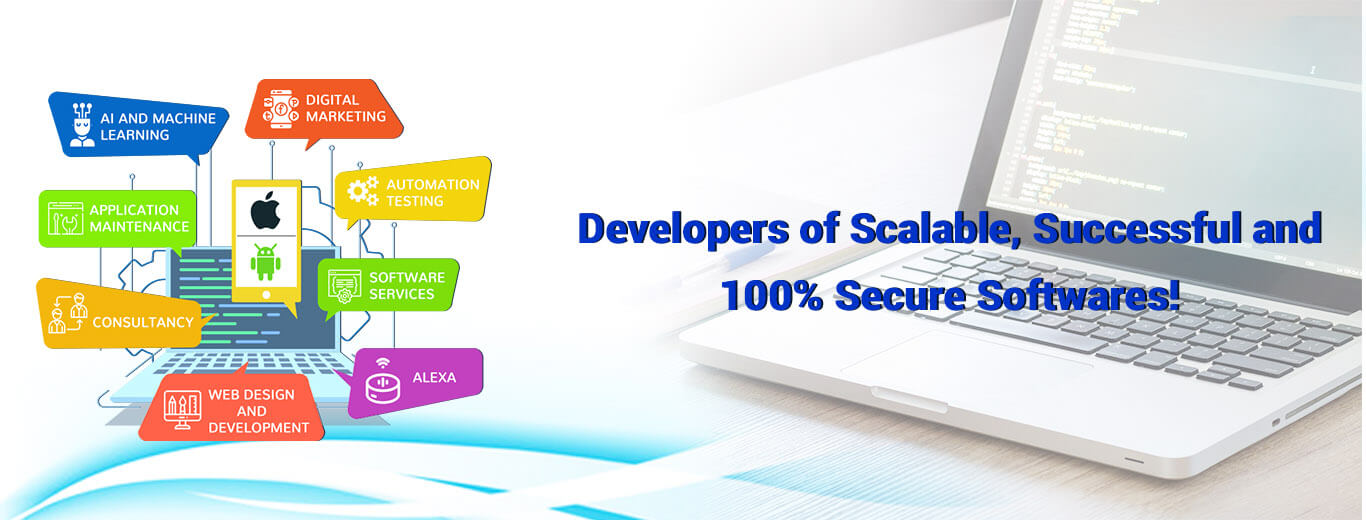Blockchain technology is revolutionizing the software development landscape, extending far beyond its initial application in cryptocurrencies. Its decentralized, immutable, and transparent nature is introducing new paradigms in how software is conceptualized, developed, and deployed. This transformation is evident in various sectors, from finance and healthcare to supply chain and energy management, where blockchain’s capabilities are being harnessed to enhance security, efficiency, and trust.
Blockchain Use Cases Beyond Cryptocurrency
While blockchain gained prominence through cryptocurrencies like Bitcoin, its underlying technology offers solutions to a myriad of challenges across industries:
*Supply Chain Management: Blockchain enables real-time tracking of goods, ensuring transparency and reducing fraud. For instance, Walmart utilizes blockchain to trace food products, enhancing food safety and recall efficiency.
*Healthcare: Secure sharing of patient records across institutions is facilitated by blockchain, maintaining data integrity and patient privacy. Projects like MedRec have demonstrated blockchain’s potential in managing electronic health records.
*Digital Identity Verification: Blockchain provides self-sovereign identity solutions, allowing individuals to control their digital identities and reducing the risk of identity theft.
*Voting Systems: Blockchain-based voting ensures transparency and tamper-proof records, enhancing the integrity of electoral processes.
*Intellectual Property Rights: Artists and creators can register their work on blockchain platforms, establishing clear ownership and facilitating royalty payments through smart contracts.
Smart Contracts and Decentralized Applications (dApps)
Smart contracts are autonomous programs encoded with agreement terms, designed to execute automatically once specific conditions are fulfilled—removing the need for third-party oversight or intervention.
*Insurance: Smart contracts automate claims processing, triggering payouts when specific conditions are satisfied, thereby reducing processing time and administrative overhead.
*Real Estate: Property transactions can be streamlined using smart contracts, ensuring transparent and secure transfers of ownership without the need for traditional escrow services.
*Decentralized Finance (DeFi): Platforms like Uniswap and Aave utilize smart contracts to facilitate peer-to-peer lending and trading, democratizing access to financial services.
Decentralized applications (dApps) built on blockchain platforms like Ethereum and Solana are transforming user interactions by removing centralized control. These apps run on decentralized peer-to-peer networks, delivering enhanced security, greater transparency, and full control to users without relying on centralized systems.
Challenges in Blockchain Adoption
Despite its transformative potential, blockchain adoption faces several hurdles:
*Scalability: Current blockchain networks often struggle with processing large volumes of transactions quickly. Techniques such as sharding and layer-2 scaling methods are actively being developed to overcome this challenge.
*Integration with Legacy Systems: Incorporating blockchain into existing infrastructures requires significant changes, posing technical and financial challenges for organizations.
*Regulatory Uncertainty: The evolving legal landscape around blockchain and cryptocurrencies can deter adoption, as businesses seek clarity on compliance requirements.
*Energy Consumption: Proof-of-Work (PoW) consensus mechanisms, used by some blockchains, are energy-intensive. Transitioning to Proof-of-Stake (PoS) and other energy-efficient models is crucial for sustainability.
*Skill Gap: There is a shortage of professionals with expertise in blockchain development, making it challenging for companies to build and maintain blockchain-based solutions.
Blockchain technology is reshaping software development by introducing decentralized, secure, and transparent systems across various industries. While challenges remain in terms of scalability, integration, and regulation, ongoing advancements and growing interest suggest a promising future for blockchain applications beyond cryptocurrency. As the technology matures, it is poised to become a foundational element in the next generation of software solutions.
To learn more about how blockchain can transform your software projects or to explore tailored development solutions, feel free to contact iT Gurus Software. We’re here to help you innovate with confidence.


Leave a Reply